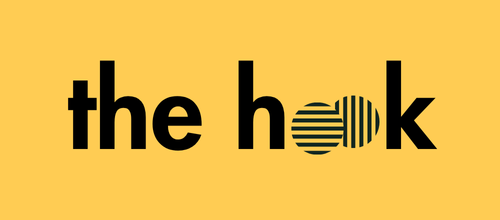Why You Need to Measure Your Event ROI and Performance
Planning your 2026 event calendar without benchmarks is like navigating without a map. You may know the direction you want to go, but without data, you’ll struggle to make confident decisions about budgets, formats, or markets.
That’s where an Event ROI & Performance Template comes in. By analysing your past events, you can build benchmarks that reveal what truly works — and what doesn’t. This isn’t just about crunching numbers; it’s about unlocking strategic insights that shape smarter, more impactful event marketing strategies.
At The Hook Studio, we’ve created a comprehensive Event ROI & Performance Template to help you do exactly that. Here’s why it matters.
What is Event ROI?
Event ROI (Return on Investment) is a way to measure the value an event delivers compared to the resources invested in it. In simple terms, it answers the question: Did this event generate enough results to justify its cost?
The most common calculation is:
Event ROI = (Event Revenue – Event Cost) ÷ Event Cost x 100
But event ROI goes beyond simple revenue. Depending on your goals, it can also include:
Pipeline creation → Opportunities and deals generated from the event
Pipeline influence → How the event impacted deals already in progress
Customer expansion → Growth from existing customer relationships
Brand outcomes → Awareness, advocacy, and thought leadership
By combining these measures, you get a fuller view of event performance — one that connects your event strategy directly to business results.
Strategic conclusions you can draw with event benchmarks
1. Which event types work best
Trade shows, dinners, roadshows, partner activations — each serves a purpose. By comparing ROI across formats, you can decide what to scale up or cut back.
Keep in mind: A negative ROI doesn’t always mean an event “failed.” It may have delivered strong engagement but at too high a cost. Benchmarks highlight where to refine costs for better returns.
2. Regional performance differences
Events don’t perform equally in every market. Benchmarks reveal where ROI is strongest, helping you decide where to expand or test.
3. Audience quality vs. quantity
More attendees don’t always equal better results. Tracking the full funnel — from attendee → MQL → Opportunity → Closed Won — helps you learn whether smaller, targeted events outperform larger ones.
4. New business vs. existing customer impact
By separating prospect vs. customer results, you’ll see whether events are better at driving new pipeline or expanding existing relationships. This insight ensures your event marketing strategy aligns with commercial goals.
5. Pipeline sourcing vs. influence
Not all pipeline is sourced directly at events — much is influenced. With ROI benchmarks, you’ll understand both, giving a clearer picture of overall event impact.
Tactical conclusions you can draw
Benchmarks don’t just support strategic decisions; they also help with your day-to-day planning:
Attendance rate benchmarks → Refine registration-to-attendance expectations
Conversion by stage → Spot funnel weak points and adjust messaging, targeting, or format
Supplier & logistics insights → Learn which venues and partners deliver the best returns
Average opportunity value → Identify which event types consistently yield higher-value deals
Board-ready narrative → Prove impact with clear ROI data, strengthening your case for next year’s budget
Why benchmarks matter for event marketing strategy
Benchmarks act as your event performance compass. They give you realistic expectations, data-backed insights, and a way to link event spend directly to pipeline and revenue. This is crucial for:
Marketing leaders who need to prove impact to the board
Event managers seeking to refine formats and targeting
Founders and leadership teams making high-stakes budget decisions
Without benchmarks, event planning relies too heavily on assumptions. With them, you can measure success, identify patterns, and plan more confidently for future events.
In summary
While ROI isn’t the only measure of event success — depending on your event goals, your key performance indicator may be focused around brand building or community growth for example — ROI is however, a powerful way to quantify performance.
By completing The Hook Studio’s Event ROI & Performance Template, you can move from “we think events worked” to “we know exactly which events drove ROI, and why.” That clarity helps you:
Refine your event mix
Negotiate budgets with confidence
Run a more efficient, data-backed program
👉 Download The Hook Studio Event ROI & Performance Template here
And if you’d like help applying this analysis in your company, we’d be happy to support.

